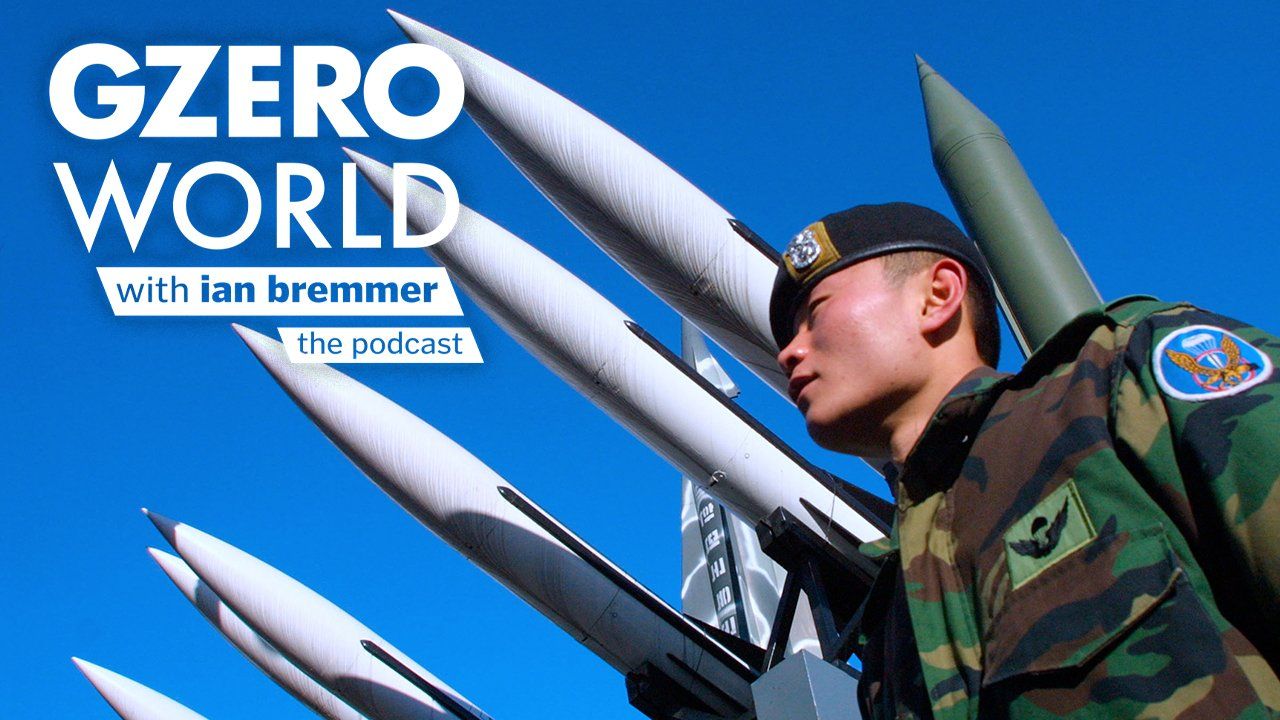July 12, 2025
Listen: The world is heading toward a new nuclear arms race—one that’s more chaotic and dangerous than the last. The Cold War built rules of deterrence for a world of dueling superpowers and static arsenals. But in a fragmented, GZERO world of fast-moving technology and unpredictable leadership, the safeguards are fraying. On the GZERO World Podcast, Admiral James Stavridis, former Supreme Allied Commander of NATO, sits down with Ian Bremmer to discuss the growing nuclear threat and what we can do to stop it.
The indicators are alarming: China is stockpiling nuclear warheads at record speed. Russia continues to rattle its nuclear saber in Ukraine. Even US allies are privately and publicly questioning whether they need a deterrent of their own. So how serious is the nuclear risk? How do we guarantee security in a world where the weapons (and the rules) are changing? Are we ready for a future where not just missiles, but lines of code, could end civilization? Stavridis and Bremmer assess the current arms race and what it will take to lower the nuclear temperature.
“We're already involved in a proxy war with a nuclear power,” Stavridis warns, “We'd be smart to try and continue to have strong alliances to balance China and Russia drawing closer and closer together.”
More For You
- YouTube
For many in Iran, it’s a waiting game for how long Ayatollah Khamenei has left to live.
Most Popular
An army soldier stands guard at a post at the Friendship Gate, following exchanges of fire between Pakistan and Afghanistan forces, at the border crossing between the two countries in Chaman, Pakistan February 27, 2026. Picture taken with a mobile phone.
REUTERS/Abdul Khaliq Achakzai
In a 30-minute call on Thursday, President Donald Trump reportedly told Ukrainian President Volodymyr Zelensky he wants to end the war with Russia as soon as possible — aiming for a deal by summer, but ideally within weeks.
Former British ambassador to the U.S. Peter Mandelson leaves his residence after he was released following his arrest by London police on Monday on suspicion of misconduct in public office, following the release of U.S. Justice Department files linked to the late financier and convicted sex offender Jeffrey Epstein, in London, Britain, February 26, 2026.
REUTERS/Toby Melville
The ghost of Jeffrey Epstein continues to haunt the world.
Think you know what's going on around the world? Here's your chance to prove it.
© 2025 GZERO Media. All Rights Reserved | A Eurasia Group media company.
